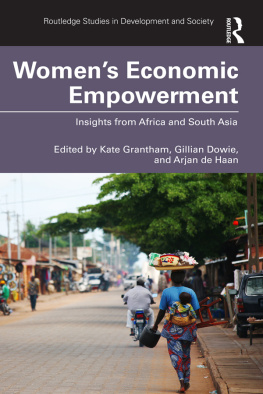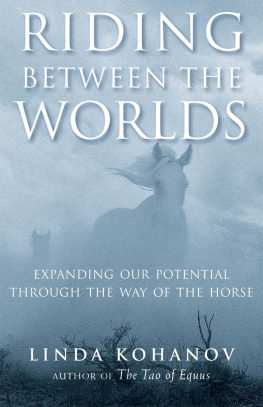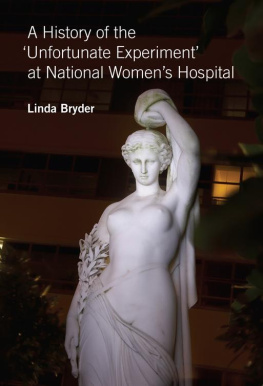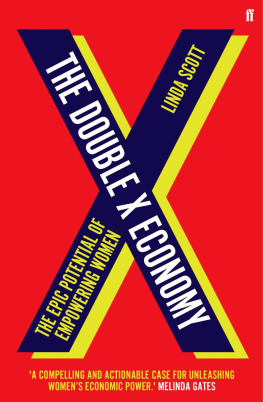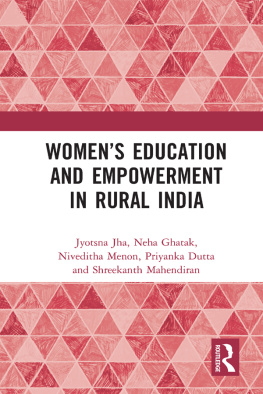Linda Scott - The Double X Economy: The Epic Potential of Womens Empowerment
Here you can read online Linda Scott - The Double X Economy: The Epic Potential of Womens Empowerment full text of the book (entire story) in english for free. Download pdf and epub, get meaning, cover and reviews about this ebook. year: 2020, publisher: Farrar, Straus and Giroux, genre: Romance novel. Description of the work, (preface) as well as reviews are available. Best literature library LitArk.com created for fans of good reading and offers a wide selection of genres:
Romance novel
Science fiction
Adventure
Detective
Science
History
Home and family
Prose
Art
Politics
Computer
Non-fiction
Religion
Business
Children
Humor
Choose a favorite category and find really read worthwhile books. Enjoy immersion in the world of imagination, feel the emotions of the characters or learn something new for yourself, make an fascinating discovery.

- Book:The Double X Economy: The Epic Potential of Womens Empowerment
- Author:
- Publisher:Farrar, Straus and Giroux
- Genre:
- Year:2020
- Rating:4 / 5
- Favourites:Add to favourites
- Your mark:
- 80
- 1
- 2
- 3
- 4
- 5
The Double X Economy: The Epic Potential of Womens Empowerment: summary, description and annotation
We offer to read an annotation, description, summary or preface (depends on what the author of the book "The Double X Economy: The Epic Potential of Womens Empowerment" wrote himself). If you haven't found the necessary information about the book — write in the comments, we will try to find it.
Linda Scott: author's other books
Who wrote The Double X Economy: The Epic Potential of Womens Empowerment? Find out the surname, the name of the author of the book and a list of all author's works by series.
The Double X Economy: The Epic Potential of Womens Empowerment — read online for free the complete book (whole text) full work
Below is the text of the book, divided by pages. System saving the place of the last page read, allows you to conveniently read the book "The Double X Economy: The Epic Potential of Womens Empowerment" online for free, without having to search again every time where you left off. Put a bookmark, and you can go to the page where you finished reading at any time.
Font size:
Interval:
Bookmark:
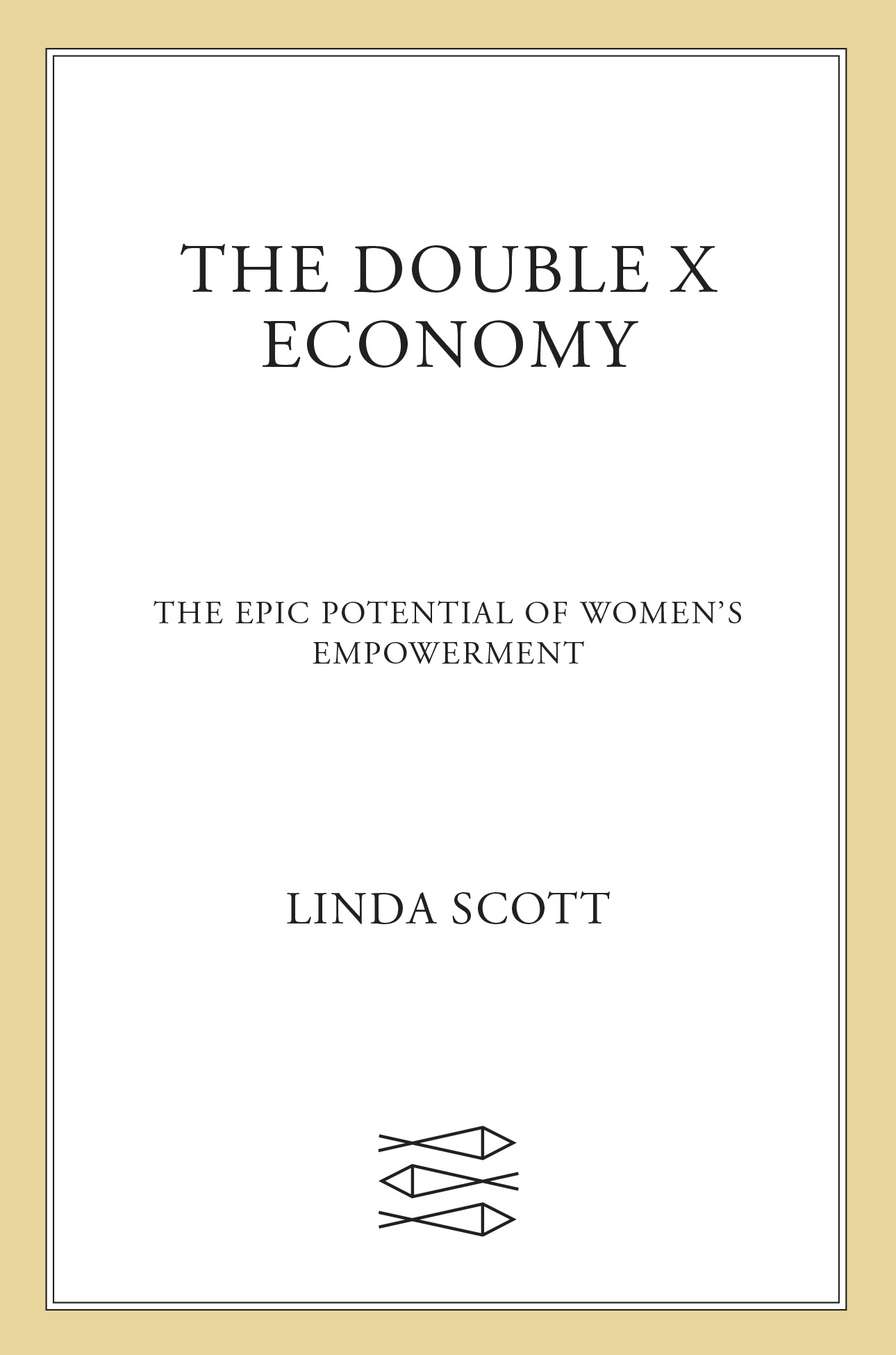

The author and publisher have provided this e-book to you for your personal use only. You may not make this e-book publicly available in any way. Copyright infringement is against the law. If you believe the copy of this e-book you are reading infringes on the authors copyright, please notify the publisher at: us.macmillanusa.com/piracy.
For Jim, Catherine, and Paul
The truth will set you free, but first it will piss you off.
GLORIA STEINEM
A s the car whirled through the unlit streets of Accra, my heart pounded. The driver explained the scenes moving past us, his voice full of rage and sorrow.
Hundreds of homeless adolescent girls moved like shadows in the night. Some were half-naked, bathing in buckets because they had nowhere private to go. Others slept in piles. They run from the villages, the driver said. Their parents want to sell them to a man they dont know, to be a wife who must work like an animal by day and submit sexually by night. They run to the city, believing they can escape.
Many had pregnant bellies or were holding infants. Rape was a fact of daily life in the villages, he said, but these streets were no safer. We have a generation growing up, from birth, on the street, the driver said in anguish. They will never know a family or a community. How will they learn right from wrong? What will happen to Ghana when these children become adults?
Many girls worked in the markets carrying shoppers purchases in baskets they balanced atop their heads, but some fell into prostitution. Still others became trapped in a nightmare of ancient stature: the slave trade that still emanates from West Africa and feeds the vast crime rings of the world.
In my hotel lobby, I felt as if I had stepped back from another dimension. I have been doing fieldwork among the worlds poor for a long time, but I have never observed anything that disturbed me more than what I saw on my first night in Ghana.
I had arrived that afternoon to start a promising project: my team from Oxford would test an intervention to help rural girls stay in school rather than drop out. It was a simple thingproviding free sanitary padsbut definitely worth a try. Retaining girls through secondary school was already known to be a powerful economic boost for poor nations. Educated females add to the quality of the labor supply, as well as its size, which stimulates growth. But girls who complete their education also have their first child later and so have fewer children, which slows the overwhelming rate of population expansion. Educated women also raise their own children differently, insisting they finish school, eat well, and are given adequate health care. These mothers act as a brake on the pernicious cycle of poverty that grips Africa.
But that evening I met someone who showed me what happened when the forces pulling girls out of school also made them run away. These girls in desperate flight produced a downward spiral that radiated danger and suffering for generations in the entire region. That destructive force, I knew, rolled across the world, carrying violence and instability to other countriesbecause human trafficking is one of international crimes most profitable activities. My experience that night forever changed the way I thought about my work. And it gave me a sense of urgency that I have never lost.
The unlikely truth that equal economic treatment for women would put a stop to some of the worlds costliest evils, while building prosperity for everyone, is at the core of this books argument. In these pages, I will tell more stories like this one from the shadows of Accra. I will draw on personal experiences from the villages of Africa to the slums of Asia, as well as the boardrooms of London and the universities of the United States. Throughout, I will show how the same plot of economic exclusion repeats itself in each of these places, always with negative impact.
An unparalleled influx of data since 2005 reveals this reality: a distinctive pattern of economic inequality marks the female population of every nation, each with the same mechanisms holding the disadvantages in place. Everywhere, the barriers to womens economic inclusion reach beyond work and salary to encompass property ownership, capital, credit, and markets. These economic impediments, combined with the cultural constraints usually imposed on womenlimited mobility, reproductive vulnerability, and the ever-present threat of violenceform a shadow economy unique to females: I call it the Double X Economy.
If the global community chose to dissolve the economic obstacles facing women, an unprecedented era of peace and prosperity would follow. Over the past decade, a small movement has begun, propelled by the intention to do just thateliminate the barriers. Though its numbers are still few, this womens economic empowerment movement now has global reach and counts a rising tide of the worlds most powerful institutions among its partners: national governments, international agencies, large foundations, global charities, religious organizations, and multinational corporations.
I have been part of the womens economic empowerment movement from its beginning. My role began with research that tested ideas for helping women gain financial autonomy. Initially, I worked in rural areas, especially in Africa. I tested my own ideas, as well as those of others, and worked face-to-face with women in different countries and under varying circumstances. I also hosted an annual gathering of womens economic empowerment specialists called the Power Shift Forum for Women in the World Economy, where people working on this cause could share what they were learning. In 2015, my focus shifted. Though I continue to conduct research in remote areas, I now also participate in high-level policy conversations about implementing global reforms that take me to the capitals of the world.
I am frequently dismayed by what I observe. The national finance ministers who manage the world economy undermine womens advocates by treating them like a ladies auxiliary. The Asia-Pacific Economic Cooperation (APEC) and the G20 may hold a womens week or start an engagement group and even put a phrase about women in their communiqus, but they wont accommodate the distinctive needs of half their citizenry in their plans. They refuse to learn how the exclusion of women hurts their economies or how including women in their national budgeting could bring the growth they so desperately seek. They sideline the Double X Economy on the basis of nothing more than prejudice.
Thats why we need you. By writing this book, I hope to recruit many voices, hands, and minds to the cause of womens economic inclusion. I propose concrete, reasonable, and effective action. I ask you to join this movement regardless of your sexual and gender identity, race, or origin. Im reaching out whether you work in a factory, in an office, on a farm, at home, or online. In this book, every time I say, We should do this or We can infer that, I mean all of us.
Why are we only now learning about this shadow economy? There have been two obstacles: an absence of data and a blinkered way of thinking about our exchange systems. Economic measurement focuses on the exchange of money, but much of womens economic contribution, like household production or farm labor, goes uncompensated. Furthermore, the smallest unit of data we usually record is the household, in which womens earnings are typically attributed to a male head. For these two reasons alone, our systems do not pick up womens economic activity most of the time.
Font size:
Interval:
Bookmark:
Similar books «The Double X Economy: The Epic Potential of Womens Empowerment»
Look at similar books to The Double X Economy: The Epic Potential of Womens Empowerment. We have selected literature similar in name and meaning in the hope of providing readers with more options to find new, interesting, not yet read works.
Discussion, reviews of the book The Double X Economy: The Epic Potential of Womens Empowerment and just readers' own opinions. Leave your comments, write what you think about the work, its meaning or the main characters. Specify what exactly you liked and what you didn't like, and why you think so.

